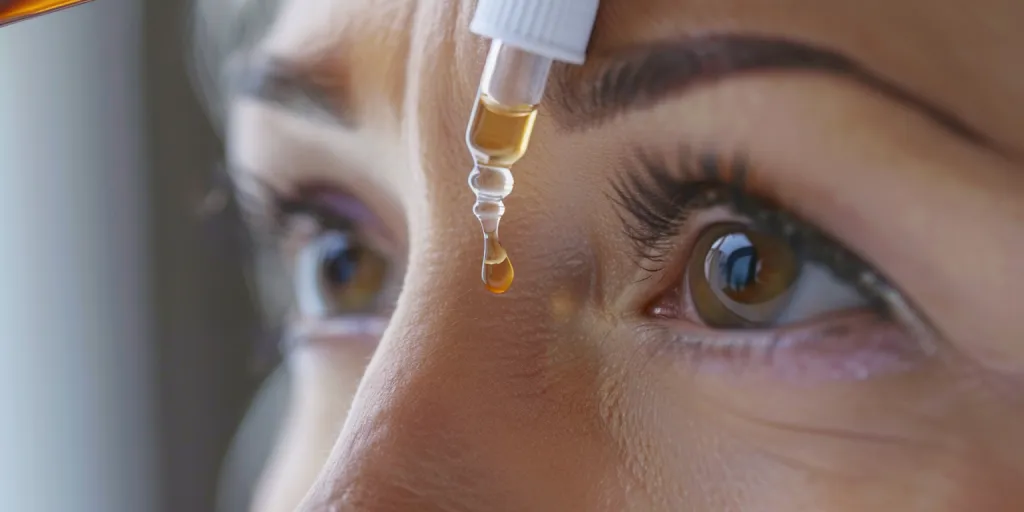Retinol, a powerhouse ingredient in the realm of skincare, has been a buzzword for its transformative effects on the skin. From reversing signs of aging to refining skin texture, retinol does it all. But what exactly is this wonder ingredient, and how does it benefit your skin? This article dives deep into the world of retinol, exploring its functions, benefits, and how to incorporate it into your skincare routine.
Table of Contents:
– What is retinol?
– Does retinol work?
– Benefits of retinol
– Side effects of retinol
– How to use retinol
– Top trendy products that contain retinol
What is retinol?
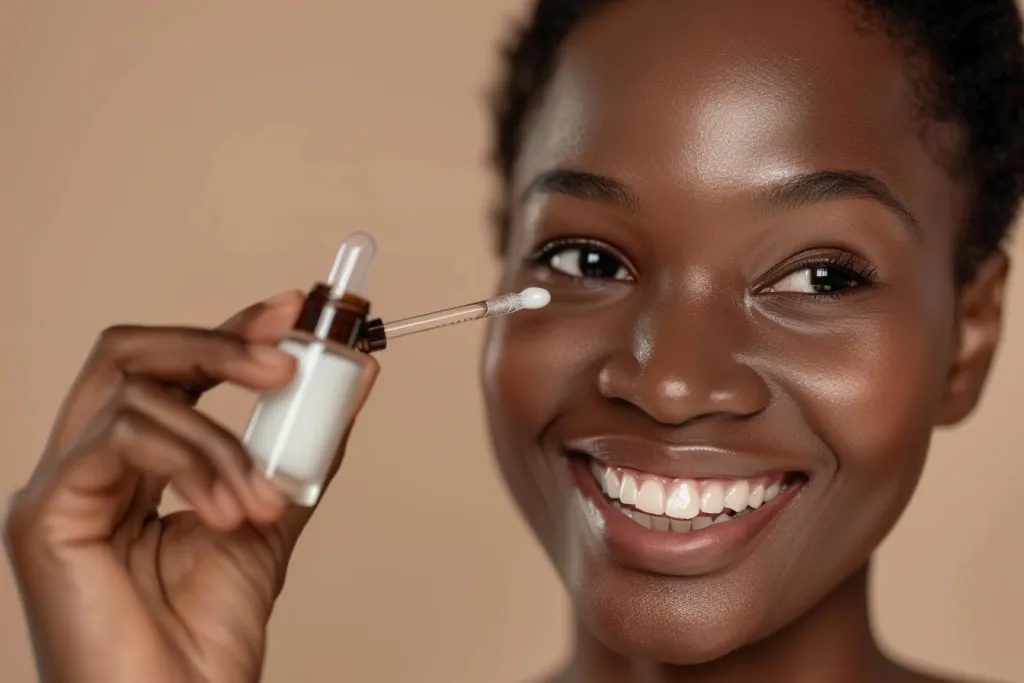
Retinol is a derivative of Vitamin A, one of the body’s key nutrients for boosting cell turnover and collagen production. It’s a type of retinoid, which refers to vitamin A derivatives that unclog pores, boost collagen to reduce fine lines, and speed up cell turnover to even out discoloration and smooth the skin. Unlike its more potent relatives like tretinoin, which are available via prescription, retinol is found in over-the-counter (OTC) products, making it widely accessible.
The science behind retinol’s effectiveness lies in its ability to penetrate deep into the skin and stimulate collagen production, which in turn, diminishes wrinkles and fine lines. It also accelerates cell renewal, sloughing off dead skin cells and making way for new ones, resulting in a brighter, more even complexion. This transformative process doesn’t happen overnight but with consistent use, retinol can significantly improve skin texture and tone.
Retinol’s journey from a dermatological solution for acne to a staple in anti-aging skin care showcases its versatility and effectiveness. It works by binding to retinoid receptors on the skin, which helps normalize cell turnover and ensure a healthy, rejuvenated complexion. Its ability to penetrate the outer layers of the skin and work its magic from within makes it a sought-after ingredient in the beauty industry.
Does retinol work?
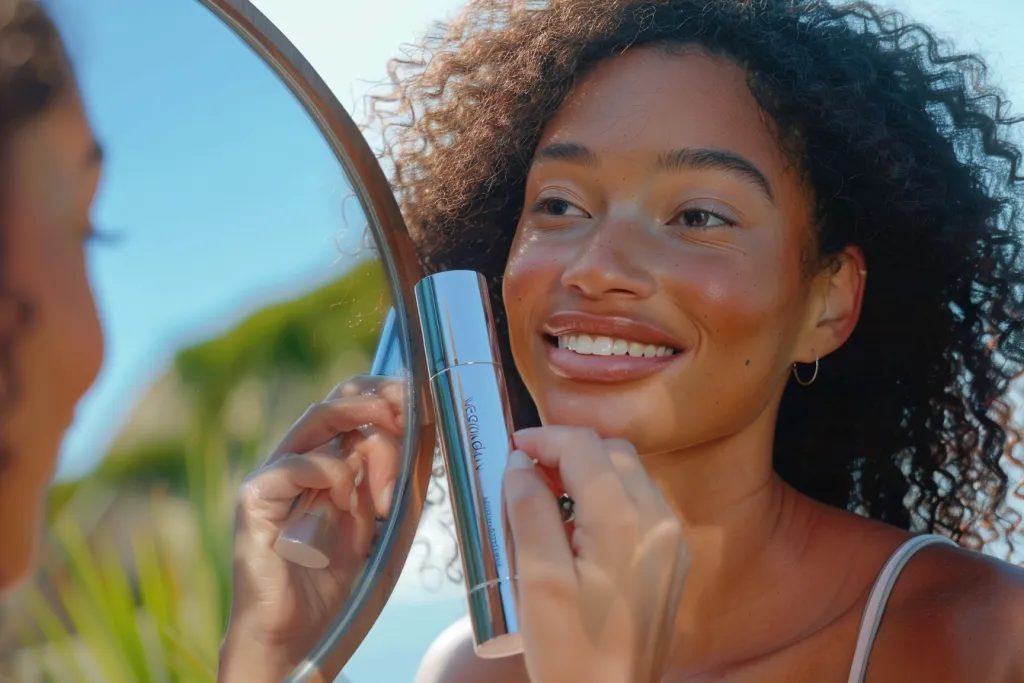
The effectiveness of retinol in skincare routines is backed by extensive research and countless success stories. Its primary action of accelerating cell turnover and boosting collagen production addresses multiple skin concerns, from aging to acne. By promoting the shedding of dead skin cells and the growth of new ones, retinol keeps the skin’s surface smooth and youthful.
Clinical studies have shown that retinol can significantly reduce the appearance of fine lines and wrinkles over time. Its antioxidant properties also protect the skin from environmental damage, preventing premature aging. Moreover, retinol’s ability to unclog pores makes it effective in treating acne, as it prevents the buildup of dead skin cells that can lead to breakouts.
Skeptics might question the efficacy of OTC retinol compared to its prescription counterparts. While prescription retinoids are undoubtedly more potent, OTC retinol products are formulated to provide gradual, less irritating results. They are an excellent option for those new to retinoids or with sensitive skin, offering a balance between effectiveness and tolerability.
Benefits of retinol
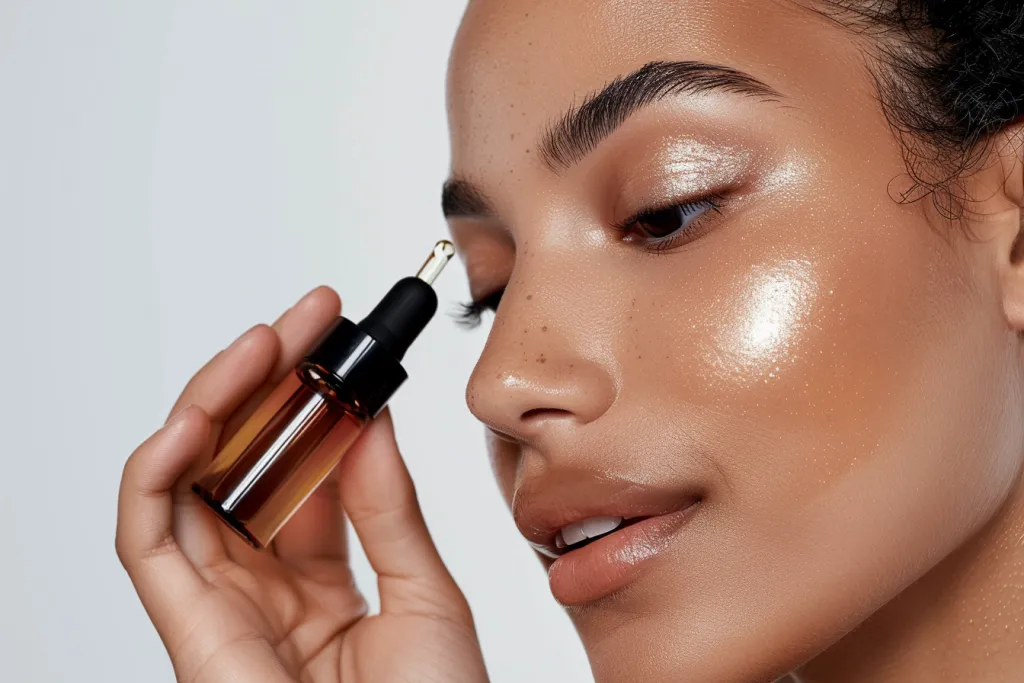
Retinol boasts a plethora of skin benefits, making it a hero ingredient in skincare. Its foremost advantage is its anti-aging property. By stimulating collagen production, retinol improves skin elasticity, reduces fine lines, and softens wrinkles, giving the skin a more youthful appearance. Its exfoliating action also contributes to a smoother skin texture and a more even skin tone, addressing issues like age spots and hyperpigmentation.
For those battling acne, retinol can be a game-changer. Its ability to unclog pores and accelerate cell turnover helps prevent acne formation and diminish existing blemishes. Additionally, retinol’s anti-inflammatory properties can soothe redness and irritation associated with breakouts.
Beyond its anti-aging and acne-fighting capabilities, retinol also enhances skin hydration. By increasing the production of glycosaminoglycans, it helps retain moisture, leading to plumper, more hydrated skin. This improved hydration also strengthens the skin’s barrier function, protecting against irritants and environmental pollutants.
Side effects of retinol
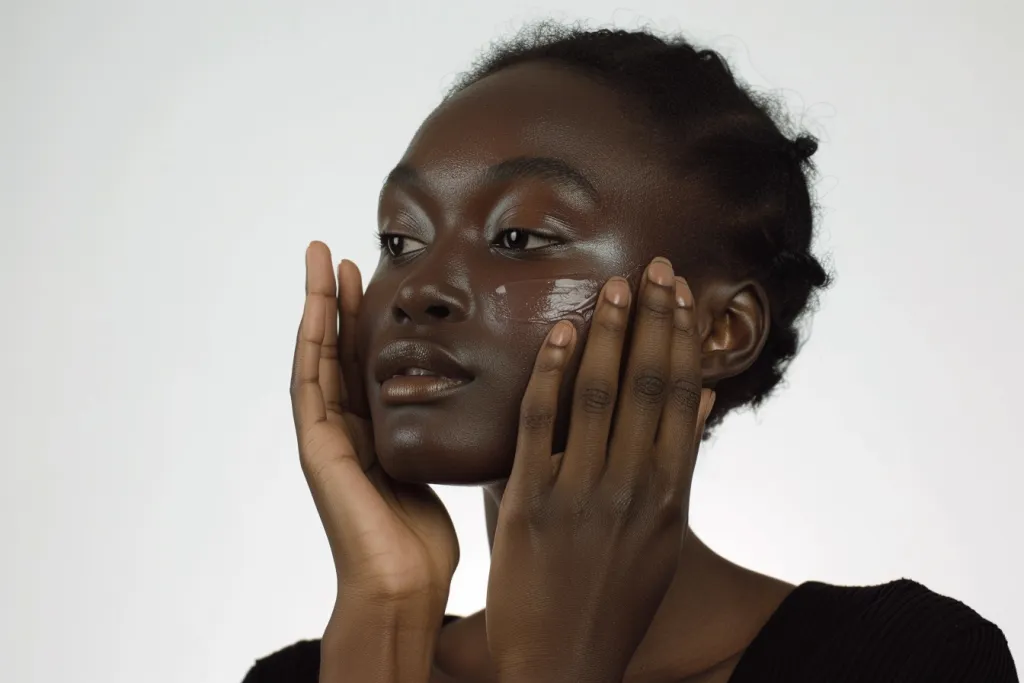
While retinol is celebrated for its numerous benefits, it’s not without potential side effects, especially during the initial stages of use. Common reactions include redness, dryness, and peeling as the skin adjusts to the ingredient. These effects are typically temporary and can be managed with proper application and care.
To minimize irritation, it’s crucial to introduce retinol gradually into your skincare routine, starting with a lower concentration and increasing it as your skin builds tolerance. It’s also important to apply retinol only at night, as it can increase the skin’s sensitivity to sunlight, leading to sunburns if not adequately protected during the day.
Another consideration is the “retinization” period, a term coined for the adjustment phase where the skin might look worse before it gets better. This phase is normal and should not deter you from continuing retinol use, as the long-term benefits far outweigh the temporary discomfort.
How to use retinol
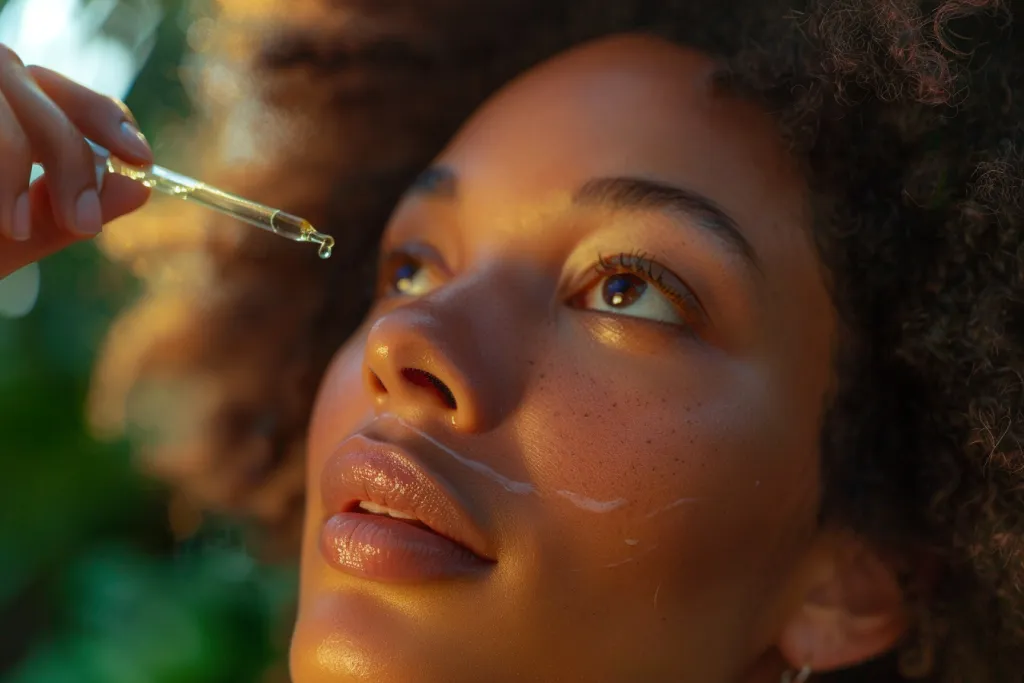
Incorporating retinol into your skincare routine requires a strategic approach to maximize its benefits while minimizing potential irritation. Start by applying a pea-sized amount of a low-concentration retinol product (0.25% to 0.5%) once or twice a week, gradually increasing the frequency as your skin adjusts. Always apply retinol to clean, dry skin, and wait at least 20 minutes before applying other skincare products to ensure optimal absorption.
Moisturizing is key when using retinol, as it can be drying. Follow up with a nourishing moisturizer to lock in hydration and soothe the skin. Additionally, daily sunscreen use is non-negotiable, as retinol makes the skin more susceptible to UV damage. Opt for a broad-spectrum sunscreen with an SPF of 30 or higher and reapply regularly when exposed to the sun.
Lastly, be patient. The benefits of retinol, from reduced wrinkles to clearer skin, develop over time. Consistent use over several months is essential to see significant improvements. If irritation persists or if you have concerns about using retinol, consulting a dermatologist is advisable.
Top trendy products that contain retinol
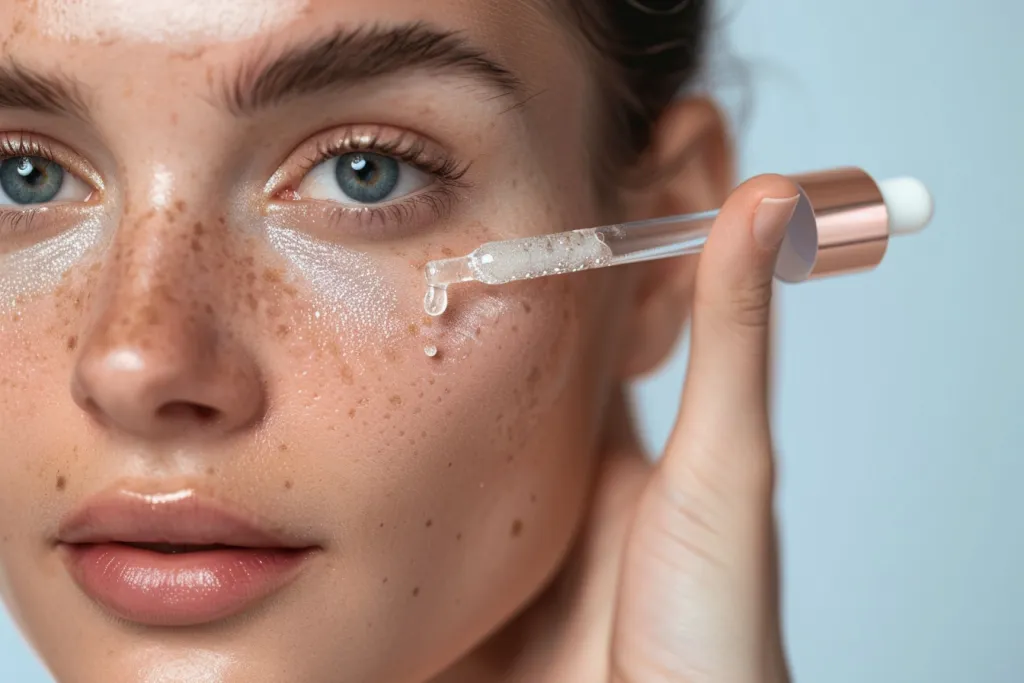
The beauty market is flooded with retinol-infused products, from serums to creams, catering to various skin types and concerns. When selecting a retinol product, look for formulations that also contain hydrating and soothing ingredients like hyaluronic acid, ceramides, and niacinamide to enhance the skin’s tolerance and maximize results.
Serums are a popular choice for retinol delivery, thanks to their lightweight texture and high concentration of active ingredients. They’re ideal for targeting specific concerns like fine lines and uneven skin tone. Retinol creams, on the other hand, are more suitable for dry skin types, offering the dual benefits of retinol treatment and hydration.
Regardless of the product type, the key to reaping the benefits of retinol lies in consistent, correct use. Choose a product that fits your skin type, concerns, and tolerance level, and incorporate it into your nighttime routine for the best results.
Conclusion: Retinol is a transformative skincare ingredient backed by science and beloved by beauty enthusiasts for its myriad benefits. From smoothing fine lines and wrinkles to combating acne and boosting skin hydration, retinol can significantly improve skin health and appearance. While it may come with potential side effects, proper use and patience are crucial to unlocking its full potential. With a myriad of retinol products available, finding one that suits your skin’s needs can pave the way to a radiant, youthful complexion.
